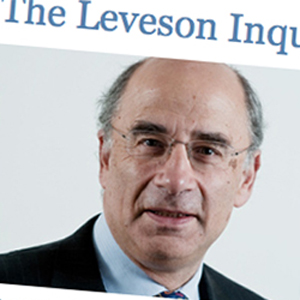Another media headhunter’s view: Leveson right to enshrine freedom of the press
 I don’t especially agree with Martin’s conclusion on yesterday’s Leveson report (media headhunters disagreeing? For Heaven, I hear them shout) although like many I share his core concerns. The next few days, and months, will present us a range of conflicting voices ranging from the reasoned to the hysterical on both sides. For many, we need press regulation to save innocent lives from being torn apart by a feral destructive press, for others this is the first step on the road to the Thought Police and Stalinist control of the free press. Or many more reasoned points in between.
I don’t especially agree with Martin’s conclusion on yesterday’s Leveson report (media headhunters disagreeing? For Heaven, I hear them shout) although like many I share his core concerns. The next few days, and months, will present us a range of conflicting voices ranging from the reasoned to the hysterical on both sides. For many, we need press regulation to save innocent lives from being torn apart by a feral destructive press, for others this is the first step on the road to the Thought Police and Stalinist control of the free press. Or many more reasoned points in between.
I’ll freely admit that I still don’t know for certain which side of the argument I come down on. I’m most inclined to agree with Emily Bell over at the Guardian. The debate already seems as outdated and redundant as the superinjunction at a time when virtually anyone can publish, in some cases with huge influence. But that’s not to play down the massive influence the printed press still holds in the UK.
Certainly we’re already seeing a raft of tabloid voices warning of the demise of the kind of noble and heroic investigative journalism that, by and large, they rarely if ever actually practise themselves. And it’s hard to see how that kind of journalism will be affected anyway. Especially as implementing Leveson’s recommendations would require legislation to enshrine press freedom, a fact that some of the shriller voices seem to have overlooked.
Then there’s the question of David Cameron. Depending on where you stand, either taking a principled stand in favour of a free press or caving in spinelessly to the media barons who (almost) won him an election. He still appears to be sitting on the fence somewhat – my feeling is he’ll either hope that the press take their own initiative on self-regulation without the need for new laws, or allow legislation to rumble back and forth through the Houses until a watered down version is eventually passed. By which time most of people will be looking in a different direction.

Even if Leveson’s recommendations were to be implemented in full, there’s still the question of how they would work in practise. My guess is that many of them will continue as before and worry about the consequences later – there’s enough of a market for lurid celebrity revelations and manufactured outrage to make it worth the risk. And even now, newspaper publishers have deep enough pockets to soak up fines and lawsuits. My question is less one of what form regulation should take, and more what it will actually change.
Martin Tripp Associates is a London-based executive search consultancy. While we are best-known for our work in the TMT (technology, media, and telecoms) space, we have also worked with some of the world’s biggest brands on challenging senior positions. Feel free to contact us to discuss any of the issues raised in this blog.